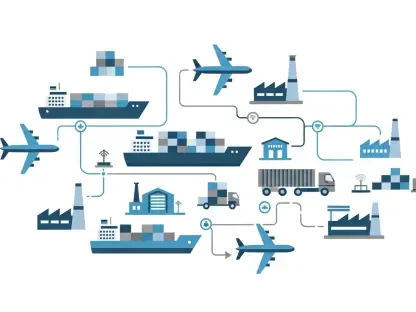The recent incident involving Israel’s infiltration of supply chains to detonate thousands of pagers and radios within Lebanon, resulting in numerous casualties, has thrust the reliability of technology products and supply chain security into the spotlight. This controversial action has ignited a complex and multifaceted debate within the technology community, eliciting sharply divided opinions. In stark contrast, discussions in Turkey have pivoted towards a patriotic celebration of local technology firms such as Baykar and Aselsan, advocating fervently for a shift towards “domestic and national technology.” This dichotomy in perspectives raises critical questions about the efficacy of national technology in safeguarding against supply chain vulnerabilities.
International Laws and Ethical Dilemmas
The discussion around supply chain security and national technology cannot sidestep the crucial aspect of international legal frameworks, particularly the “Convention on Certain Conventional Weapons.” This convention explicitly prohibits the use of booby traps disguised as mundane objects filled with explosives, thus categorizing the event in Lebanon as an international offense despite some factions lauding it as a strategic success. This violation significantly complicates the ethical landscape surrounding the incident and opens up broader concerns about the normalization of such tactics within the global technology community.
The pursuit of developing national technology within the confines of a capitalist framework presents its own set of challenges. Essentially, it boils down to selecting between nationalistic capitalists—who may or may not have international allies—and global tech giants. The fundamental question remains: can domestic technology production genuinely offer a fortress against supply chain vulnerabilities, or is this just another propagandist narrative? The endeavor to create a self-sustaining, domestic technology landscape is far more complicated than it appears on the surface.
Complexities of Modern Production
Modern electronic devices are intricate, with their production processes involving extremely complex components sourced from a multitude of countries. These supply chains span numerous suppliers who provide raw materials, electronic circuits, and software, converging to create the final product. For any single nation to manage all these processes internally, several parameters must align perfectly. These encompass the availability of natural resources, skilled personnel, and the requisite facilities capable of executing such tasks. The enormous complexity and economic impracticality pose significant hurdles to the notion of singular domestic production.
Moreover, the machinery required to manufacture advanced electronic devices introduces yet another layer of complexity. For instance, the production of microchips, which is critical for most modern electronics, necessitates partnerships with key players like ASML, Intel, Samsung, and TSMC, as they are the sole manufacturers of extreme ultraviolet lithography tools. Additionally, software considerations further complicate the equation. Achieving total self-reliance implies developing every software module from scratch—a Herculean task that makes avoiding potential vulnerabilities almost impossible. Consequently, these limitations challenge the feasibility of the argument for domestic technology as a panacea for supply chain issues.
Exploiting Supply Chain Vulnerabilities
Supply chain attacks take advantage of weaknesses at different stages of production, with historical incidents providing stark illustrations of their dangers. Such attacks might infiltrate these networks by subtly contaminating raw materials, analogous to the infamous STUXNET scenario, or by embedding malware into what appear to be benign USB sticks. Edward Snowden’s revelations about potential vulnerabilities during the transportation phase further underscore the multifaceted nature of these threats, illustrating that such attacks are not just hypothetical but a real, pressing concern.
Even with robust security measures in place, sophisticatedly planned attacks can bypass detection mechanisms for prolonged periods. The SolarWinds breach is a prime example, where malware managed to infiltrate numerous U.S. government agencies and remained undetected for nine months, causing widespread damage. These incidents serve as powerful reminders that, irrespective of whether the production process is domestically confined or internationally dispersed, the risk of supply chain attacks remains conspicuously high. Thus, asserting that national technology alone can shield against such vulnerabilities is an oversimplified and potentially misleading proposition.
National vs. Multinational Production
Historical data and various case studies strongly suggest that the venue of production—whether national or international—has minimal impact on shielding against supply chain attacks. The audacious claim that “domestic and national technology will protect us” often serves narrow vested interests and fuels propagandistic rhetoric rather than facilitating any meaningful resolution to the actual security challenges. This sentiment, while appealing to nationalist fervor, does not offer the pragmatic solutions required to tackle the increasingly globalized nature of modern production processes.
Modern production ecosystems are intricately interwoven, making complete self-reliance an impractical and largely unattainable goal. Even if nations could theoretically eliminate interdependencies, as appealing as that may sound, it would not nullify the inherent vulnerabilities that supply chains carry. Recognizing this reality, nations must develop multifaceted strategies that transcend overtly nationalistic approaches, focusing on genuine security enhancement that acknowledges the global complexities of contemporary technological ecosystems.
Turkey’s Cyber Security Directorate
Amid these discussions on technology and security, Turkey’s pro-government media has emphasized increasing cyber security threats and announced the establishment of a Cyber Security Directorate under the Presidency. This newly formed body aims to introduce cyber security standards for state institutions, protect e-government data, and unify cyber security efforts across various government agencies. The initiative intends to create a proactive defense network that can anticipate and respond to potential cyber threats with greater efficiency and cohesion.
While these measures are critically important, skepticism persists about the government’s intentions and motivations. Given the history of politicizing public institutions, critics argue whether these steps genuinely aim to bolster cyber security or serve political interests. Nevertheless, initiatives to enhance public institution security, protect sensitive data, and establish comprehensive cyber security standards are necessary steps in the right direction.
Addressing the Global Challenge
The recent event where Israel infiltrated supply chains to detonate thousands of pagers and radios within Lebanon, causing numerous casualties, has brought the reliability of tech products and supply chain security to the forefront. This action has sparked a complex and heated debate within the tech community, eliciting sharply divided opinions. Unlike this controversy, discussions in Turkey have shifted towards a patriotic celebration of local tech firms like Baykar and Aselsan. These firms are championed as symbols of “domestic and national technology,” and there’s a fervent push for the country to embrace its own technological solutions. This stark contrast in perspectives highlights pressing questions about the effectiveness of national technology in protecting against supply chain vulnerabilities. As nations grapple with these incidents, the larger debate focuses on whether relying on local technology can indeed provide a safer and more secure alternative to international supply chains, which have shown susceptibility to such infiltrations.









